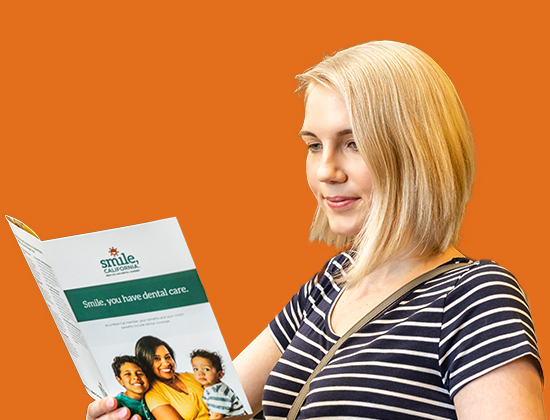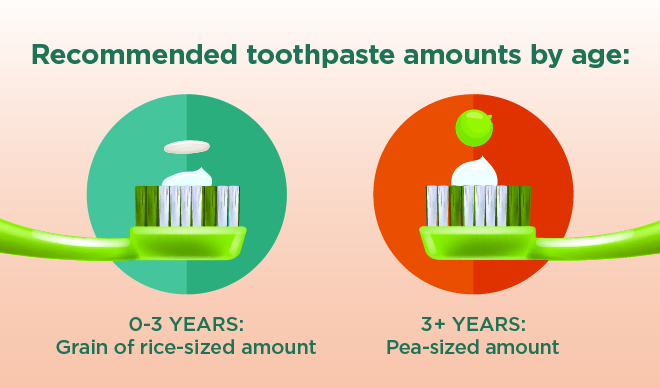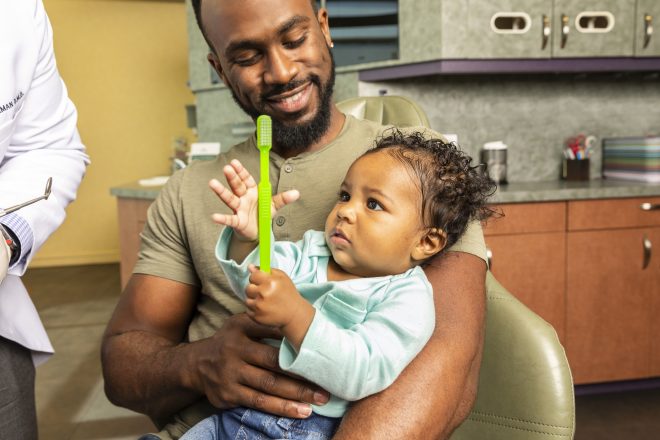Your dentist is your biggest ally when it comes to good oral health. Regular dental visits keep your gums and teeth strong and give your dentist a chance to learn about your overall health.

Caring for your baby’s smile begins the moment they are born. Healthy gums make way for healthy teeth. The Medi‑Cal Dental Program provides the following free or low-cost services for babies:
- Dental exams (every 3 months from birth to age 3)
- X-rays
- Teeth cleaning (every 6 months)
- Fluoride varnish (every 6 months)
- Fillings
- Tooth removal
- Emergency services
- Outpatient services
- Sedation (if medically necessary)
Your Baby’s Gums and How to Take Care of Them
Keep your baby’s gums clean by gently wiping the gums with a washcloth every day. At about four to six months “teething” will begin as the baby teeth start to come in. Most babies have at least one tooth before they turn 1.
Once your baby gets their first tooth, it’s time to begin a brushing routine. Use a rubber brush that fits over the pointer finger. These brushes are bacteria resistant when kept clean, and don’t require toothpaste and have small rubber bristles that can help gently clean your child’s tooth and gums and get to some hard-to-reach areas.
![]()
First Tooth, First Birthday, First Visit.
When should you take your baby to their first dental visit?
- You should make an appointment for your child’s first dental visit as soon as their first tooth comes in or by their first birthday, whichever comes first. The dentist will examine the health of their teeth and gums. They will speak to you about oral care for your baby and answer questions you may have. Many kids get cavities as early as age 2. See the dentist as soon as possible to prevent problems.

Caring for Baby Teeth
Once they have two teeth that touch, start flossing once a day.
As your baby becomes a toddler and more baby teeth come in, the dental visits may include teeth cleanings and fluoride varnish to protect their teeth from cavities.
Baby teeth do fall out, but it is important to take good care of them until they do. Baby teeth help your child chew and speak properly. Losing a baby tooth too early due to poor care may cause problems with their permanent teeth, like growing in crooked.
When your child is under age 3, start brushing their teeth as soon as they come in by using a grain of rice-sized smear of fluoride toothpaste.
When your child reaches age 3, you can start to use a kid-sized toothbrush and use a pea-sized amount of fluoride toothpaste every morning and night. If your child has healthy baby teeth, chances are they will have healthy adult teeth too.

Additional Resources for Babies
